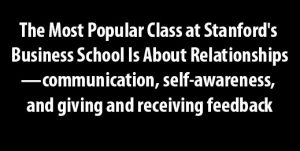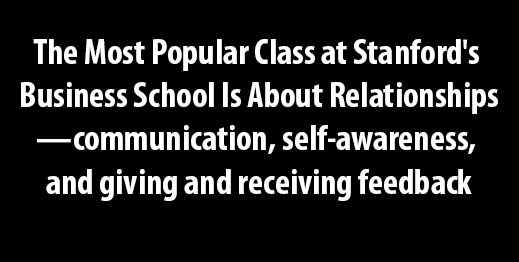 When we think about what it takes to be an effective leader, it seems the list of key competencies is exhaustive. Interpersonal skills, communication skills, resilience, drive, strategic thinking, courage, conflict management, integrity, learning orientation, adaptability, accountability, influence, creativity, financial acumen, and vision all rank high on the list of top competencies for leaders. We could easily triple the length of this list by brainstorming additional key competencies, and yet, we might never uncover one of the most crucial traits for a leader—self-awareness. Few would argue that self-awareness is unrelated to leadership success, but it rarely makes the top 10 list of key leadership skills/competencies.
When we think about what it takes to be an effective leader, it seems the list of key competencies is exhaustive. Interpersonal skills, communication skills, resilience, drive, strategic thinking, courage, conflict management, integrity, learning orientation, adaptability, accountability, influence, creativity, financial acumen, and vision all rank high on the list of top competencies for leaders. We could easily triple the length of this list by brainstorming additional key competencies, and yet, we might never uncover one of the most crucial traits for a leader—self-awareness. Few would argue that self-awareness is unrelated to leadership success, but it rarely makes the top 10 list of key leadership skills/competencies.
At the leadership level, self-awareness is both over-estimated and underrated.
Many assume that leaders become more self-aware as their careers progress. Interestingly, the opposite is also true. As individuals climb the corporate ladder, they tend to become more confident in their self-perception. They also tend to become more confident that their view of themselves matches the views held by others. Both are typically incorrect. In fact, in a study by Hay Group, only 4% of male leaders had strong self-awareness as compared to 19% of female leaders. The reality is as a leader gains more power and influence, the number of people around them who will offer valid criticism and critiques shrink. These leaders live in a vacuum where they are praised and supported by the masses due to political/survival motivations. Honest, critical/constructive feedback from anyone other than their boss becomes less likely with each promotion.
Additionally, leaders and colleagues alike suffer from perception biases that further distort fact from fiction. When articulating our own self-perception, we tend to focus on our value system. The thoughts, beliefs, and feelings that are most important to the individual are highlighted, but when examples of incongruous behavior are examined, we rationalize these as “one-offs” or purely circumstantial. We dismiss any evidence that conflicts with the ideal image we’ve created for ourselves. However, when we assess others, we focus first on their behaviors as evidence of their value/belief system. We don’t accept that the behaviors we’ve observed are one-offs or circumstantial.
This perfect storm of power, influence, and poor self-awareness can go unchecked for years until formal, anonymous feedback is solicited from peers/direct reports through engagement surveys and 360 degree feedback assessments. For leaders living in the vacuum of positive feedback, a harsh 360 feedback report can be devastating. And when the feedback is delivered without an expert coach’s facilitation, the leader often becomes defensive and dismisses the feedback as invalid or an artifact of overall organizational dissatisfaction.
But getting leaders to an improved state of self-awareness is crucial. Self-awareness is the starting point for authenticity and integrity. Knowing who you are, your strengths, and your weaknesses allows you to be more strategic in your self-development, career choices, and team member selection. Leaders with strong self-awareness play to their own strengths, but don’t hide their challenges. Instead, they strategically assemble key team players around them with complementary skills that drive balance, fill gaps, and illuminate blind spots. Leaders with strong self-awareness identify the most crucial areas they need to develop and set a plan for making improvements. They are confident enough to admit when they don’t know something, and as a result they tend to be more thoughtful and avoid acting impulsively.
To become more self-aware, solicit honest (and if necessary, anonymous) feedback from others frequently. Request to take part in 360 feedback sessions. Listen without judgment. Take scientific personality assessments to gain more insight into your own motivational drivers, preferences, values, and work styles and be slow to dismiss your behaviors as one-offs. Instead, examine your behavioral trends without offering excuses. And above all else, never stop asking questions. Self-awareness is a journey. As we mature and develop more life/professional experiences, our motivations, beliefs, and values can change. Start by asking yourself who you are today. Discover how well your vision matches the perception of others and then take responsibility for closing the gap.

